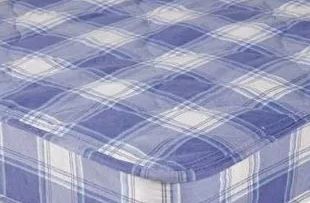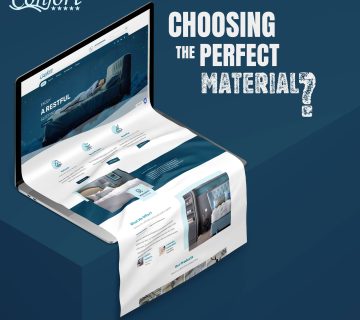Updated 2020: Once you’ve established exactly what’s in your potential new mattress the last thing you will encounter is mattress cover fabrics, also know as ‘mattress ticking’. You may be wondering “what is mattress damask or stitchbond?”. Should you really spend extra on your mattress based on the cover type?
This guide will help explain the 4 main types of mattress ticking and which ones should be avoided
What is Mattress Ticking?
Before we start, it’s important to define what mattress ticking is. Ticking relates to the cover material used in mattress construction. It’s an industry term to describe a mattress cover fabric.
Types of Mattress Ticking
Walking around any bed shed or retailer will show you just how many weird and wonderful mattress fabrics, coverings, and upholsterings there are to confuse you. Just like upholstery fibres and spring counts, they are there to fool you into (usually) paying more for a mattress that may not be worth it. There are hundreds (if not thousands) on offer in a range of colours and unusual names. Some of these will claim to have hypoallergenic properties (usually just polyester), others have ‘cooling’ materials that will claim to keep your Memory foam furnace bed cooler (they won’t), and some even have precious metals woven into them to claim increasingly fantastic properties.
However, in reality, there are only four ‘classes’ of fabrics used for mattress ticking.
- Stitchbond
- Damask
- Knits
- Specials (taken with a pinch of salt)
We will walk you through what each of these terms means so you can make your mind up on whether or not they’re worth the price tag when choosing a new mattress.
1. Stitchbond
This is the cheapest grade of fabric that can ethically be used on a mattress. Any lower grade will probably be sackcloth – not the ideal mattress texture you would choose. It’s rather rough to the touch and is used primarily on budget and economy mattresses. It is a printed material; patterns are not woven like damask or any other mattress fabric. It’s not very breathable or flexible due to its crude weaving method, however it is very tough and durable, but lacks the movement required for a comfortable night’s sleep.


 then 'Add to home screen'
then 'Add to home screen' then 'Add to home screen'
then 'Add to home screen'



No comment